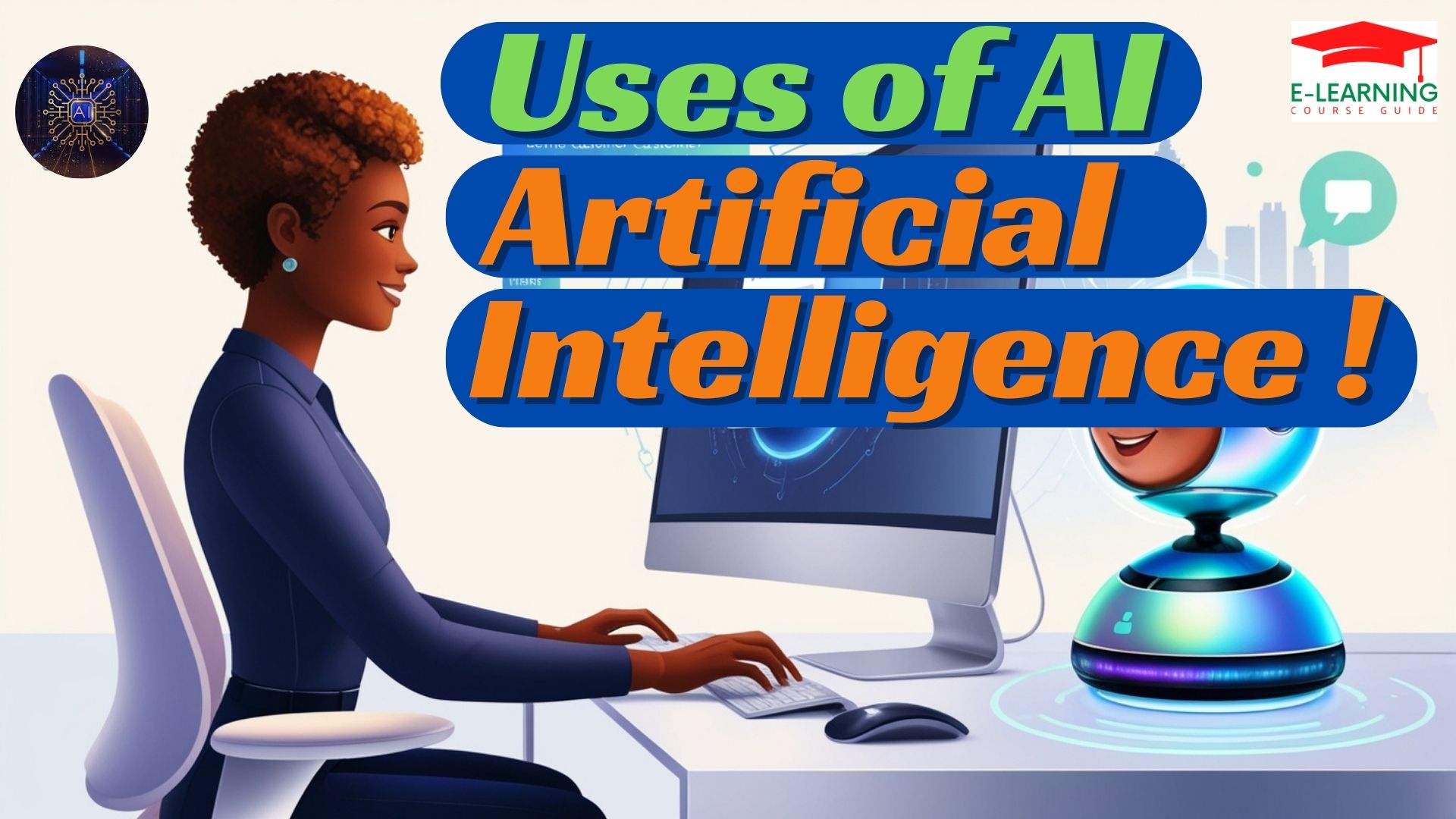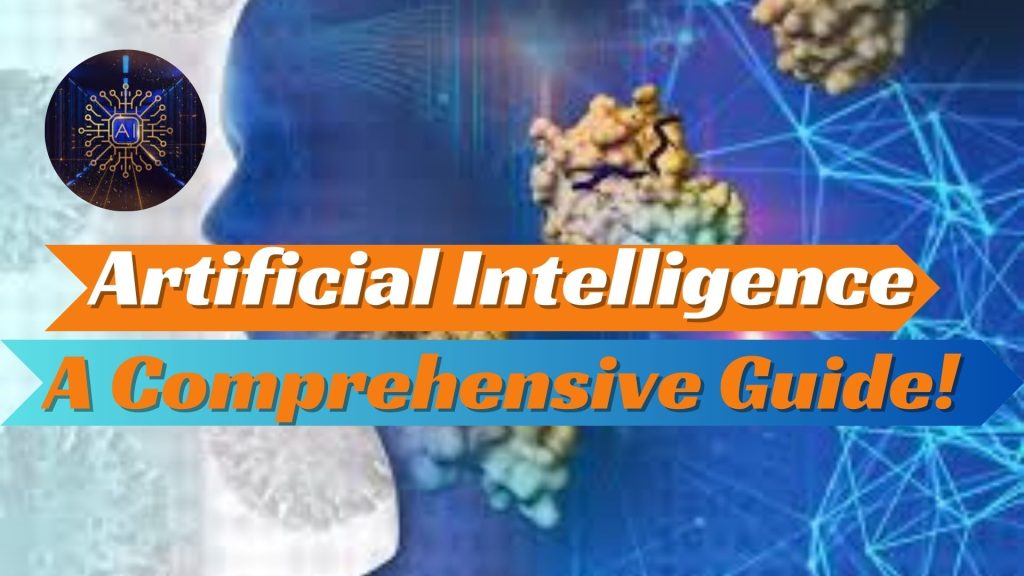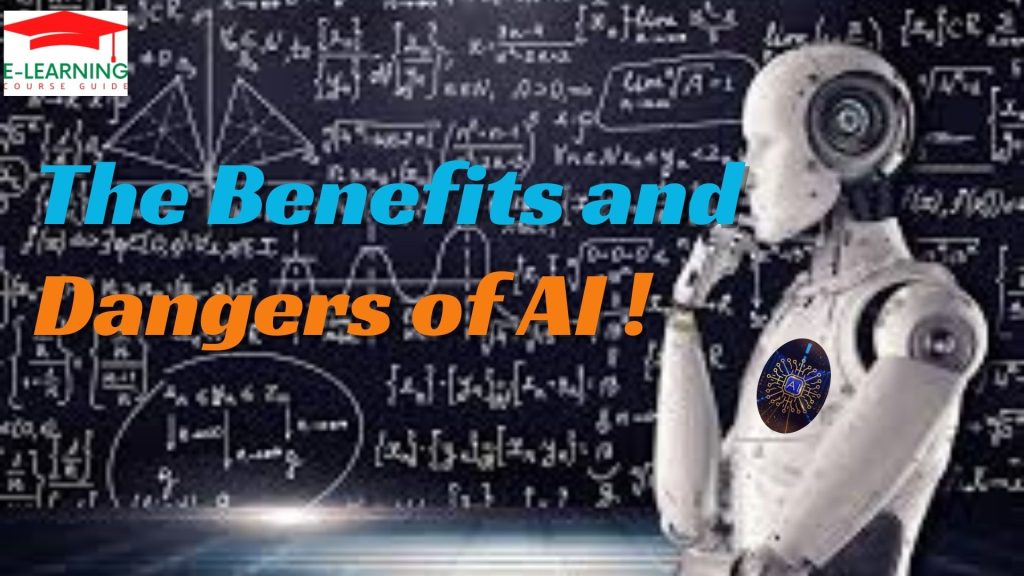
Artificial Intelligence (AI)
Artificial Intelligence (AI) is revolutionizing the way we live, work, and interact with the world. From streamlining business processes to enhancing customer experiences, AI is becoming an integral part of many industries and applications. Here’s an in-depth look at the various uses of AI in different sectors.
1. Healthcare
AI is playing a transformative role in healthcare, improving patient care, diagnosis, and treatment.
- Medical Diagnostics: AI systems analyze medical data such as X-rays, MRIs, and CT scans to assist doctors in diagnosing diseases more quickly and accurately. For instance, AI can detect early signs of conditions like cancer or heart disease with higher precision than traditional methods.
- Personalized Medicine: AI algorithms are used to analyze genetic data and medical histories to create personalized treatment plans for patients, optimizing therapy based on individual needs.
- Drug Discovery: AI accelerates the drug discovery process by simulating biological processes and identifying potential compounds, significantly reducing the time and cost of developing new drugs.
- Virtual Health Assistants: AI-powered chatbots and virtual assistants help patients schedule appointments, manage medications, and monitor symptoms in real time.
2. Finance and Banking
AI is transforming the finance industry by automating processes, enhancing decision-making, and improving security.
- Fraud Detection: AI systems analyze transaction data and identify unusual patterns that may indicate fraudulent activities. This helps banks detect and prevent fraud more effectively.
- Algorithmic Trading: AI is used in stock markets to execute trades at optimal times by analyzing vast amounts of data and making real-time decisions.
- Credit Scoring: AI-driven models evaluate creditworthiness by analyzing financial history, social media activity, and other data points, providing faster and more accurate credit scores.
- Customer Service: AI-powered chatbots handle customer queries, automate routine tasks, and assist customers in completing transactions, improving the overall customer experience.
3. Retail and E-commerce
AI has become essential in the retail sector, enhancing customer experience and optimizing business operations.
- Personalized Recommendations: AI analyzes customer behavior, preferences, and past purchases to recommend products on platforms like Amazon or Netflix, improving user engagement and sales.
- Inventory Management: AI algorithms help retailers manage inventory by predicting demand and automating stock replenishment based on customer trends and purchasing patterns.
- Chatbots for Customer Support: AI chatbots assist customers with queries, helping them find products, process returns, and manage orders 24/7.
- Visual Search: AI allows users to upload images of items they want, and the system then identifies similar products, improving the search experience for customers.
4. Transportation and Autonomous Vehicles
AI is revolutionizing transportation by enabling the development of autonomous vehicles and improving traffic management.
- Self-Driving Cars: AI powers autonomous vehicles by using computer vision, sensors, and machine learning to navigate roads, avoid obstacles, and make real-time driving decisions. Companies like Tesla and Waymo are leading in this space.
- Traffic Management: AI helps cities manage traffic flow by analyzing data from sensors and cameras to optimize traffic light patterns, reduce congestion, and predict accidents.
- Predictive Maintenance: AI systems in the transportation industry monitor vehicles and predict when parts may fail, reducing downtime and ensuring safer operations.
5. Education
AI is transforming the education sector by creating personalized learning experiences and improving administrative efficiency.
- Personalized Learning: AI-powered platforms analyze students’ learning styles and progress to deliver tailored content that meets individual needs, helping students grasp concepts more effectively.
- Intelligent Tutoring Systems: AI-based tutors provide personalized feedback, helping students practice and understand difficult subjects, particularly in math, science, and language learning.
- Automated Grading: AI systems can grade exams, essays, and assignments more efficiently, freeing up time for educators to focus on teaching and student interaction.
- Administrative Support: AI helps educational institutions manage tasks like enrollment, scheduling, and answering common student inquiries through chatbots.
6. Manufacturing and Industry 4.0
In manufacturing, AI is powering smart factories, optimizing production, and reducing operational costs.
- Predictive Maintenance: AI systems analyze equipment data to predict when machinery is likely to fail, allowing for proactive repairs and minimizing downtime.
- Quality Control: AI-powered visual inspection systems detect defects in products during the manufacturing process, ensuring high-quality standards and reducing waste.
- Robotics: AI-driven robots are used in factories to automate tasks like assembling, packaging, and sorting, improving efficiency and reducing human error.
- Supply Chain Optimization: AI analyzes data from supply chains to forecast demand, optimize logistics, and ensure that materials are delivered on time, reducing bottlenecks.
7. Entertainment and Media
AI is reshaping the entertainment industry, from content creation to user engagement.
- Content Recommendation: Streaming services like Netflix and Spotify use AI algorithms to recommend shows, movies, and music based on user preferences and behavior.
- Video and Game Development: AI is used to create realistic graphics, generate non-player characters (NPCs), and enhance game physics, making video games more immersive and lifelike.
- Automated Journalism: AI systems can write simple news stories, such as sports recaps or financial reports, freeing journalists to focus on more complex topics.
- Content Moderation: AI helps social media platforms like Facebook and YouTube detect inappropriate content, fake news, and hate speech, ensuring safer online environments.
8. Agriculture
AI is making agriculture more efficient, sustainable, and productive through precision farming techniques.
- Crop Monitoring: AI-powered drones and sensors gather data on crop health, soil conditions, and weather patterns, helping farmers make data-driven decisions to maximize yield.
- Automated Machinery: AI-controlled tractors, harvesters, and irrigation systems optimize planting, watering, and harvesting, reducing labor and increasing productivity.
- Pest and Disease Detection: AI systems can identify pests and diseases in crops early, allowing farmers to take timely actions and reduce crop losses.
- Sustainability: AI helps optimize resource use (water, fertilizers) and reduces environmental impact by ensuring that crops are grown more efficiently.
9. Energy and Utilities
AI is optimizing energy production, consumption, and management across various sectors.
- Smart Grids: AI helps manage energy grids by balancing supply and demand, predicting energy usage patterns, and optimizing energy distribution.
- Renewable Energy Optimization: AI improves the efficiency of renewable energy sources like wind and solar by predicting weather patterns and adjusting energy production in real time.
- Energy Conservation: AI systems in smart homes and buildings monitor energy usage and optimize heating, cooling, and lighting to reduce waste and lower energy costs.
10. Law and Legal Services
AI is changing the legal landscape by streamlining processes and improving access to legal services.
- Document Review: AI systems can quickly analyze legal documents, contracts, and case law, helping lawyers identify relevant information and reduce the time spent on research.
- Predictive Analytics: AI can predict the outcomes of legal cases based on historical data, helping lawyers prepare stronger arguments and make informed decisions.
- Chatbots for Legal Advice: AI-powered legal chatbots provide basic legal advice, guiding users through common legal issues such as creating contracts or understanding rights.
Conclusion: The Versatility of AI
AI’s wide range of applications across industries demonstrates its transformative potential. From improving healthcare outcomes to automating processes in manufacturing, AI is enhancing efficiency, decision-making, and innovation. However, it’s important to manage AI responsibly, addressing ethical concerns and ensuring that its benefits are widely distributed across society.
As AI technology continues to evolve, its uses will only expand, making it a critical tool for shaping the future of many sectors.


